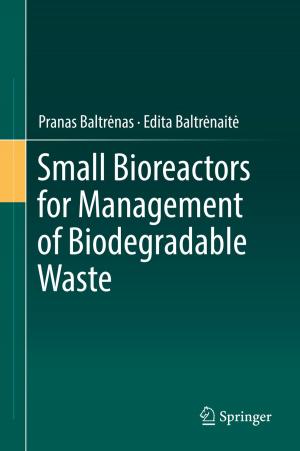Bioremediation in Latin America
Current Research and Perspectives
Nonfiction, Science & Nature, Science, Biological Sciences, Biotechnology, Environmental Science| Author: | ISBN: | 9783319057385 | |
| Publisher: | Springer International Publishing | Publication: | October 6, 2014 |
| Imprint: | Springer | Language: | English |
| Author: | |
| ISBN: | 9783319057385 |
| Publisher: | Springer International Publishing |
| Publication: | October 6, 2014 |
| Imprint: | Springer |
| Language: | English |
The book compiles an update information about the state of bioremediation in emerging Latin American countries. Some of the studied regions are sites that suffered decades of pollution by agrochemicals, heavy metals and industrial waste due to the lack of control by government regulations. Such is the case of Northern Argentina, where were illegally deposited over 30 tn of obsolete organochlorine pesticides in 1994. The content has focused in the use of native organisms (from bacteria to plants) as a viable solution to the problem of pollution, using low-cost and powerful techniques, socially well accepted and appropriate from the environmental point of view. In this context, levels of pesticide found in the Latin American population are informed. It was also displayed as a multidisciplinary approach based on concerns of a diverse group of researchers (biochemists, biologists, chemical engineers and geneticists) about a global problem, dealing with specific cases of study, with a view to project their findings to worldwide. In this regard, researchers provide their findings to regulatory sectors, whom could make appropriate decisions.
The book compiles an update information about the state of bioremediation in emerging Latin American countries. Some of the studied regions are sites that suffered decades of pollution by agrochemicals, heavy metals and industrial waste due to the lack of control by government regulations. Such is the case of Northern Argentina, where were illegally deposited over 30 tn of obsolete organochlorine pesticides in 1994. The content has focused in the use of native organisms (from bacteria to plants) as a viable solution to the problem of pollution, using low-cost and powerful techniques, socially well accepted and appropriate from the environmental point of view. In this context, levels of pesticide found in the Latin American population are informed. It was also displayed as a multidisciplinary approach based on concerns of a diverse group of researchers (biochemists, biologists, chemical engineers and geneticists) about a global problem, dealing with specific cases of study, with a view to project their findings to worldwide. In this regard, researchers provide their findings to regulatory sectors, whom could make appropriate decisions.















